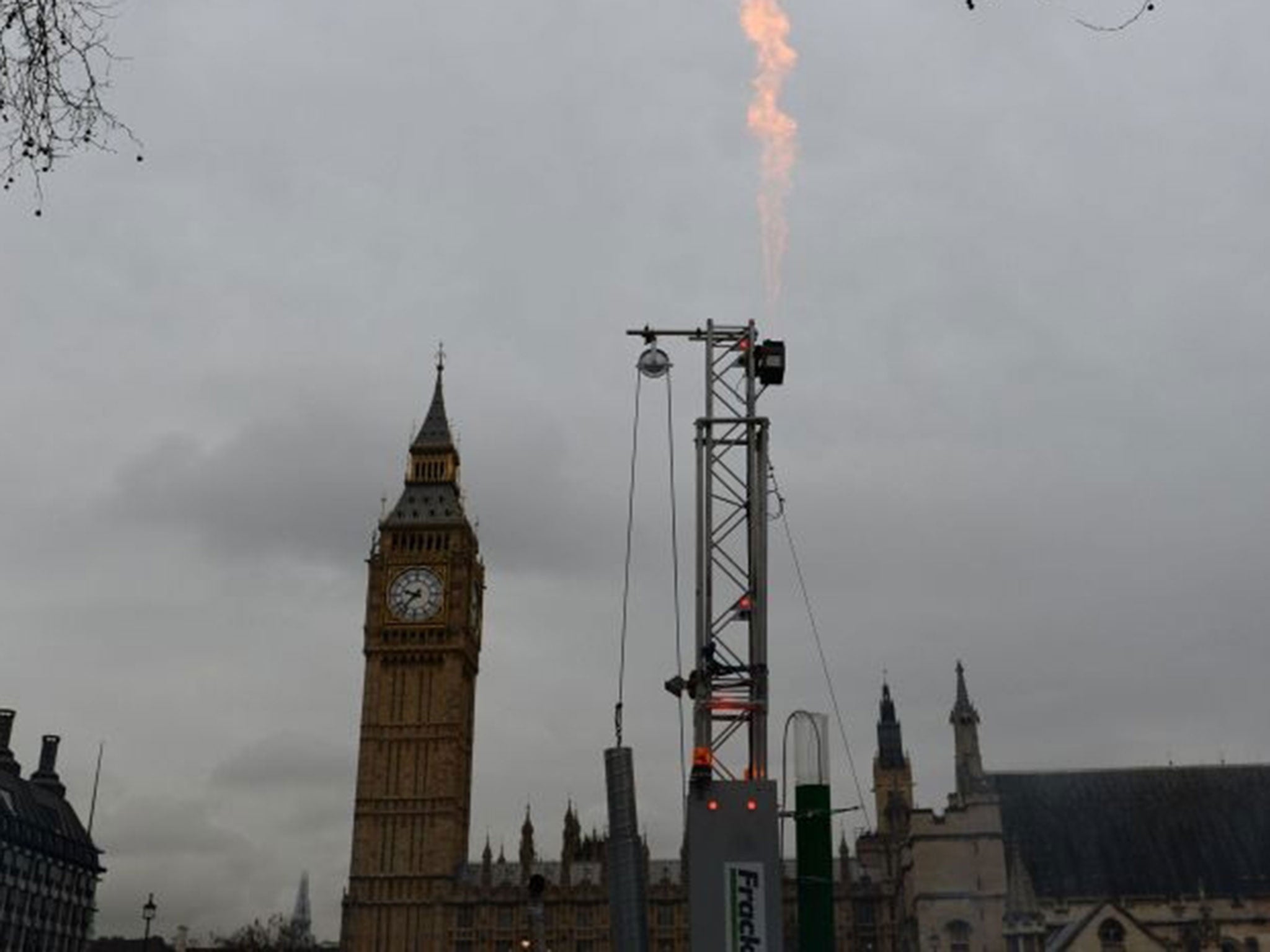Theresa May accused of trying to bribe public to accept fracking
Planned changes mean individual households could receive between £5,000 and £20,000

Your support helps us to tell the story
From reproductive rights to climate change to Big Tech, The Independent is on the ground when the story is developing. Whether it's investigating the financials of Elon Musk's pro-Trump PAC or producing our latest documentary, 'The A Word', which shines a light on the American women fighting for reproductive rights, we know how important it is to parse out the facts from the messaging.
At such a critical moment in US history, we need reporters on the ground. Your donation allows us to keep sending journalists to speak to both sides of the story.
The Independent is trusted by Americans across the entire political spectrum. And unlike many other quality news outlets, we choose not to lock Americans out of our reporting and analysis with paywalls. We believe quality journalism should be available to everyone, paid for by those who can afford it.
Your support makes all the difference.Theresa May has been accused of trying to bribe and silence the public into accepting fracking.
Individual households will be given cash payments potentially running into thousands of pounds in recompense for fracking in their area, under new plans announced by the Prime Minister.
A £1bn shale wealth fund unveiled by former chancellor George Osborne in November will set aside up to 10 per cent of the tax proceeds from fracking to benefit the communities hosting wells.
But now the Prime Minister is amending the scheme so the money can go direct to residents rather than being given to councils or community trusts to spend, as Mr Osborne planned.
It is expected that the new fund could deliver as much as £10m to each community where wells are sited. Downing Street declined to estimate how much pay-outs could be worth, but it is thought that individual households could receive between £5,000 and £20,000.
The change could go some way to countering resident resistance to fracking, but has been branded by critics as a “bribe” to householders which could divert cash away from community priorities like infrastructure or skills training.
Green Party MEP Molly Scott Cato said the proposed payments to individual households amounted to "little more than bribes".
"This is bound to set household against household and can only exacerbate community tensions," said Ms Scott Cato, who pointed to a recent poll suggesting just 19 per cent of people in the UK support fracking. “Following hard on the heels of the Hinkley fiasco, this misguided policy to encourage fracking demonstrates again that the Government has no strategic energy policy," she said.
"It is also another worrying indication of the failure of commitment to tackle climate change, first demonstrated by May in her abolition of the Department of Energy and Climate Change."
Greenpeace UK chief scientist Doug Parr said: "The Government has tried to sweeten the fracking pill with cash payments before, and it didn't work.
"Over the last two years, public opposition has soared and support for shale has tanked. People's concerns about climate change and their local environment cannot be silenced with a wad of cash.
"You can't put a price on the quality of the air you breathe, the water you drink, and the beauty of our countryside."
Speaking ahead of the launch of a consultation on the fund, Ms May said she wanted to make sure that individuals benefit personally from economic decisions.
And indicated that the model could be applied to other government programmes, such as the Community Infrastructure Levy charge on property development in England and Wales.
“The government I lead will be always be driven by the interests of the many – ordinary families for whom life is harder than many people in politics realise,” said Ms May.
“As I said on my first night as Prime Minister: when we take the big calls, we'll think not of the powerful but of you.
“This announcement is an example of putting those principles into action. It's about making sure people personally benefit from economic decisions that are taken – not just councils – and putting them back in control over their lives.
“We'll be looking at applying this approach to other government programmes in the future too, as we press on with the work of building a country that works for everyone.”
Under Ms May's changes, the option of giving money direct to residents will have to be considered when decisions are made on how to share proceeds from the Shale Wealth Fund, though cash could still go to councils to fund community projects.
A British Geological Survey (BGS) study of shale gas across the north of England estimated total reserves of 1,300 trillion cubic feet – the equivalent of more than 500 years of UK gas consumption at current levels.
The government is seeking comments on its proposals for a Shale Wealth Fund and will publish its response to the consultation later this year.
Press Association
Join our commenting forum
Join thought-provoking conversations, follow other Independent readers and see their replies
Comments